Higher education in Brussels 2024
-
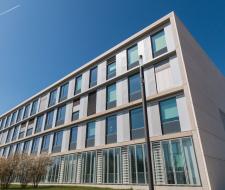 Ranked #26 worldwide for joint-EMBA programmes
Ranked #26 worldwide for joint-EMBA programmes BelgiumBrusselsCurrently watching: 1from 5400.00 € / semesterApply with documents
BelgiumBrusselsCurrently watching: 1from 5400.00 € / semesterApply with documents -
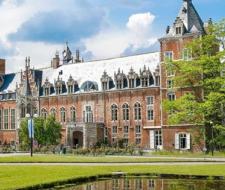 from 600.00 $ / yearApply with documents
from 600.00 $ / yearApply with documents -
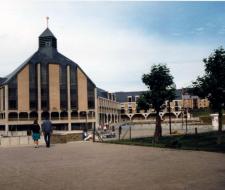 from 4554.00 $ / yearApply with documents
from 4554.00 $ / yearApply with documents -
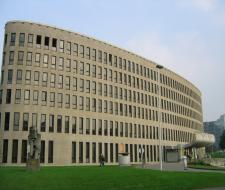 from 1591.00 $ / yearApply with documents
from 1591.00 $ / yearApply with documents -
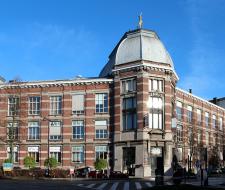 from 423.00 $ / yearApply with documents
from 423.00 $ / yearApply with documents -
 The number 51 University in Belgium
The number 51 University in Belgium BelgiumBrusselsCurrently watching: 1from 12000.00 € / yearApply with documents
BelgiumBrusselsCurrently watching: 1from 12000.00 € / yearApply with documents -
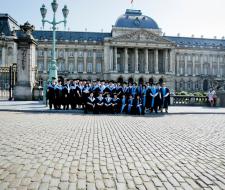 Ranked #26 worldwide for joint-EMBA programmes
Ranked #26 worldwide for joint-EMBA programmes BelgiumBrusselsCurrently watching: 2from 10800.00 € / yearApply with documents
BelgiumBrusselsCurrently watching: 2from 10800.00 € / yearApply with documents
-
 In 2019 students achieved an impressive average diploma score of 32.2
In 2019 students achieved an impressive average diploma score of 32.2 BelgiumBrusselsCurrently watching: 7Apply with documents
BelgiumBrusselsCurrently watching: 7Apply with documents -
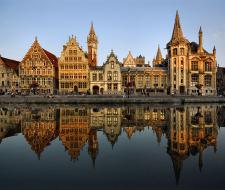
 BelgiumBrusselsCurrently watching: 5Apply with documents
BelgiumBrusselsCurrently watching: 5Apply with documents -
 Ranked #26 worldwide for joint-EMBA programmes
Ranked #26 worldwide for joint-EMBA programmes BelgiumBrusselsCurrently watching: 1from 5400.00 € / semesterApply with documents
BelgiumBrusselsCurrently watching: 1from 5400.00 € / semesterApply with documents -
 from 600.00 $ / yearApply with documents
from 600.00 $ / yearApply with documents -
 from 4554.00 $ / yearApply with documents
from 4554.00 $ / yearApply with documents -
 from 1591.00 $ / yearApply with documents
from 1591.00 $ / yearApply with documents -
 from 423.00 $ / yearApply with documents
from 423.00 $ / yearApply with documents -
 The number 51 University in Belgium
The number 51 University in Belgium BelgiumBrusselsCurrently watching: 1from 12000.00 € / yearApply with documents
BelgiumBrusselsCurrently watching: 1from 12000.00 € / yearApply with documents
Alternative destinations
Education information
Belgium as a whole is famous for its highly developed production and exceptional quality of goods, besides Belgium is also a crossroads of trade routes between France, England and Germany, the transport network is well developed here. For centuries, Flanders (north of Belgium) has been heading for international business, providing great opportunities to graduates of universities in Brussels. Students are also attracted by the quality of education and the opportunity to complete an internship in one of the international organizations which headquarters are located in Brussels.
The multilingual environment of Belgium is unique and is an ideal option for learning foreign languages. English, French, German and, Dutch – all these languages are actively used by residents of the country.
French in Belgium is most widespread in the south and predominates in Brussels. In the eastern part, German is more often heard, but English is used everywhere in Belgium – the vast majority of the country's indigenous population speaks it fluently. So when you go to Belgium to study a foreign language, you can be sure that language practice is guaranteed to you.
The universities in Brussels offer a large number of programs in English, most of which relate to master's/doctoral programs. Almost all bachelor's degree programs are taught in one of the three national languages. Bachelor's degree programs offered in English mainly relate to the humanities (theology, philosophy) and business areas.
Advantages of obtaining education in Brussels for foreign students
- High quality of education
Despite its small size, Belgium is in no way inferior to major European countries in terms of the quality of teaching disciplines. The PISA International Program rated the academic performance of Belgian students higher than the European average and placed Belgium on the 19th place in the ranking of countries with the highest level of education, and Belgium is on the 21st place in the UN education index.
- Low tuition fee
Belgium ranks 6th in the top 10 European countries with the cheapest education according to THE (Times Higher Education) ranking. Despite the system of additional payment for foreign students, the total cost of studying at a Brussels state university is unlikely to exceed 4,326 USD per year. This is much cheaper than studying in the neighbouring Netherlands and the UK.
- The heart of Europe
Belgium is home not only to a large number of world universities, but also to the main offices of international companies and organizations. The headquarters of NATO and EFTA and the EU meeting room are located in Brussels, which gives Belgian students a unique chance to get an internship in one of these organizations.
- Multilingual culture and multiculturalism
The best universities in Brussels provide unique opportunities for the exchange of cultures. This is due to the existence of three national communities on the territory of the country, also to a fairly high level of immigration. Foreign students who live in Belgium permanently make up almost a quarter of its population. In addition, students from all over the world are attracted by low tuition prices and the participation of Belgian universities in international exchange programs.
- Student life
Brussels ranks 43rd in the top 50 student cities in the world according to QS ranking. Many universities in Brussels have special units to help students during their studies: housing and social services, legal advice departments, employment centres, medical centres, disability assistance centres, foreign student assistance departments and some others.

What advice would you give to potential students before applying to a university?
Be proactive and start your application early, ideally almost a year in advance. Seek recommendations from your teachers and academic advisors. The earlier you apply, the more time universities have to consider your application, and the more time you have to explore your options and make an informed decision.
Higher education system in Brussels - specifics of studying
Bachelor's degree programs last 3 years (180-240 credits), but may vary depending on the region. All programs are divided into professional and academic. A professional degree is issued only by colleges and, after receiving it, gives access to employment. An academic degree is issued by colleges and universities and, after receiving it, gives the opportunity to enrol in the corresponding master's degree. The academic baccalaureate program consists of lectures and theoretical classes, for which students receive credits. The Professional Bachelor's degree pays more attention to practical skills and, in addition to lectures and theory, includes internship periods in the workplace.
Master's degree programs take 1-2 years (60-120 credits) depending on the specialty. Upon completion of the program, the graduate is awarded the title of master and the opportunity to enter the doctoral program opens. Some universities in Brussels also offer special annual programs (advanced master, manama, masters de spécialisation) for graduate students. They are designed for professionals working in the relevant field and help to improve existing practical skills, acquire new ones and receive the necessary additional education.
The studying is mainly conducted in Dutch and French, but recently there are more and more programs in English. In addition to traditional lectures and practical classes, most of the study takes writing a thesis on the chosen topic. The number of credits awarded for the protection of scientific work in different universities ranges from 20 to 50% of the total number.
Doctoral programs in Brussels universities for foreign students
Doctoral programs are offered only by universities and upon completion are awarded the Doctor of Sciences (PhD). The main goal of doctoral studies is to write a scientific paper. Theses for a doctoral dissertation can also be written in a master's degree college or art school, if they cooperate with the university.
To enter the Brussels doctoral program, a potential student must independently contact his future supervisor and provide him with a research plan. After agreeing on work opportunities and funding with the academic council, the student is invited to study for a doctoral degree. In addition to the above standard set of documents, a summary and recommendations may be required. A student can also be invited to an interview.
During doctoral studies, a student is considered a teaching assistant of his supervisor. In Brussels universities, this is equivalent to an academic position, which entails both advantages — receiving a salary and official employment at the university, and a certain level of responsibility — the educational process will consist not only of research activities, but also teaching.
Higher education in Brussels for foreign students – scholarship opportunities
Universities in Brussels participate in the ERASMUS+, ERASMUS MUNDUS academic mobility programs, which provide an opportunity for exchange studies at universities in Europe and other countries. Grants cover part or all of the cost of tuition, flights and accommodation. Many universities offer their students various scholarships, but most of them relate to master's and doctoral programs. For example, Global Minds (PhD) allows students studying at a doctoral program at another university to spend half of their studies at one of the universities in Belgium. Also the Master Mind program not only reduces the cost of studying in the Belgian magistracy, but also pays students up to 8,620 USD per year.
Learning programs-summary information
| Name | Meaning | Equivalent | Min. age | Duration, years |
Next stage | Cost |
|---|---|---|---|---|---|---|
| GCSE | General certificate of secondary education | secondary education (non-accomplished) | 14 | 1–2 | A-Levels | 15,000 USD+ |
| A-Levels | Advanced level | secondary education (accomplished) | 16 | 2 | University | 15,000 USD+ |
| BTEC | Business and Technology Education Board | secondary special education | 14 | 2–3 | University/ work | 15,000 USD+ |
| Oxbridge Preparation | Preparing for Oxford and Cambridge | secondary education (accomplished) | 17 | 1 | University | 15,000 USD+ |
| International Baccalaureate | International baccalaureate | secondary education (accomplished) | 16 | 2 | University | 18,000 USD+ |
| Foundation/ Pathway Year | Preparatory year | admission to the 1st year of university | 17 | 1 | University | 14,000 USD+ |
| NCUK | The Northern consortium | 2 year university | 17,5 | 1 | 2 year University of NCUK | 13,000 USD+ |
| Special Preparation (Medics/Math/Business) | Specialized training | - | 14 | optional | optional | 4,000 USD+ |
| Academic English | Academic English | Language school | 8 + | 6–12 months | School or University | 8,000 USD+ |
Top 15 best universities in Switzerland 2024
| 1 | Glion Institute of Higher Education Switzerland |
| 2 | Les Roches International School Montana |
| 3 | César Ritz Colleges Switzerland |
| 4 | IHTTI School of Hotel Management |
| 5 | Ecole Hoteliere de Lausanne |
| 6 | Geneva Business School |
| 7 | EU Business School Montreux |
| 8 | HIM Hotel Institute Montreux |
| 9 | Swiss Hotel Management School |
| 10 | Webster University Geneva |
| 11 | Business and Hotel Management School |
| 12 | Luzern IMI |
| 13 | Swiss Hotel Management School (SHMS) Caux |
| 14 | International University in Geneva |
| 15 | Culinary Arts Academy Switzerland |



